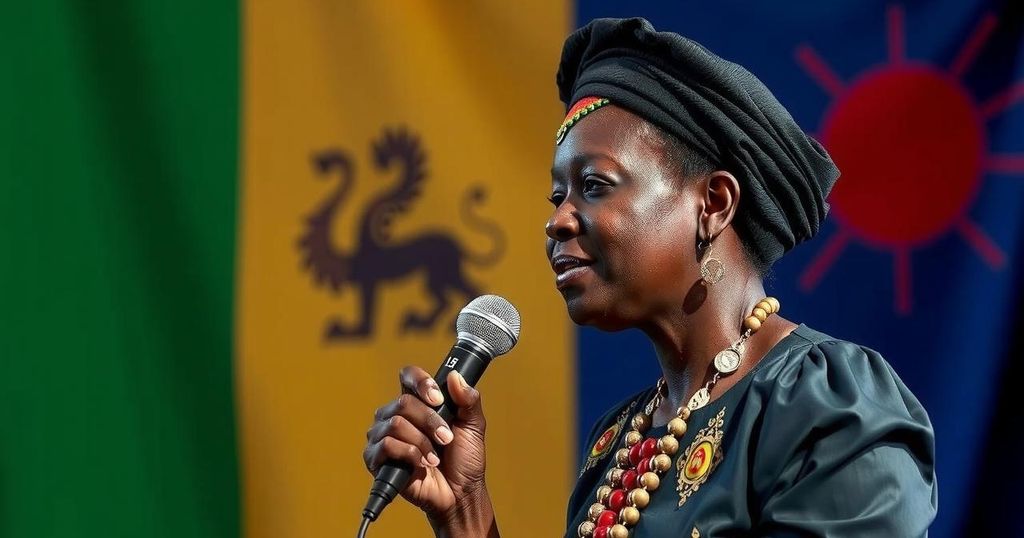Namibia is conducting its presidential election, featuring Netumbo Nandi-Ndaitwah as a leading candidate for its first female president. SWAPO’s longstanding governance is under scrutiny due to economic hardships among the youth. Approximately 1.4 million people are registered to vote, and a significant turnout is anticipated as citizens voice their concerns regarding leadership and opportunities.
Namibia is currently holding a presidential election in which Netumbo Nandi-Ndaitwah, the vice president and a prominent figure in the country’s independence movement, is poised to make history as the first female leader. With electoral results from international voters indicating strong support for her candidacy, Nandi-Ndaitwah faces her party’s long-standing challenges due to rising economic discontent among the youth. The elections take place against a backdrop of deepening frustration with SWAPO’s governance, which has persisted since Namibia’s independence in 1990,
After the passing of President Hage Geingob, Nandi-Ndaitwah’s rise is particularly significant in a region witnessing political upheaval and changing power dynamics. Her campaign promises include addressing the staggering youth unemployment rate and implementing economic reforms. With approximately 1.4 million Namibians registered to vote, the election results are anticipated to reflect the public’s sentiments on these pressing issues, along with specific concerns regarding women’s rights and economic viability.
Namibia has been governed by SWAPO (South West Africa People’s Organization) since its independence from South Africa’s apartheid regime in 1990. As the country approaches its presidential election, concerns over the economic wellbeing of the citizens have intensified, particularly among the youth faced with high unemployment rates. Nandi-Ndaitwah’s potential election as president signifies not only a shift in political dynamic but a pioneering movement towards female leadership in the nation, which has seen few women at the highest political level. This election comes at a time when neighboring countries have also experienced significant political shifts, raising the stakes for the incumbent party.
As Namibia votes for its next president, the candidacy of Netumbo Nandi-Ndaitwah represents a historically significant opportunity for the country to elect its first female leader. Amid rising dissatisfaction with the ruling party, her proposals to combat unemployment and address women’s issues may resonate with voters seeking change. The electoral outcome will be closely monitored as it may reflect broader regional trends in governance and leadership.
Original Source: abcnews.go.com






